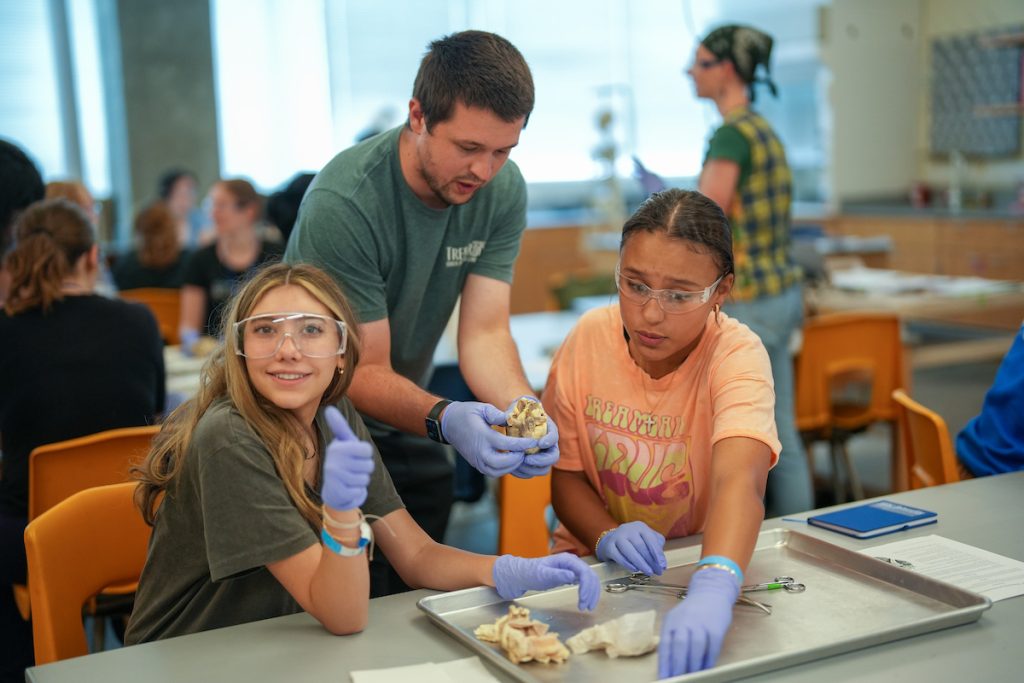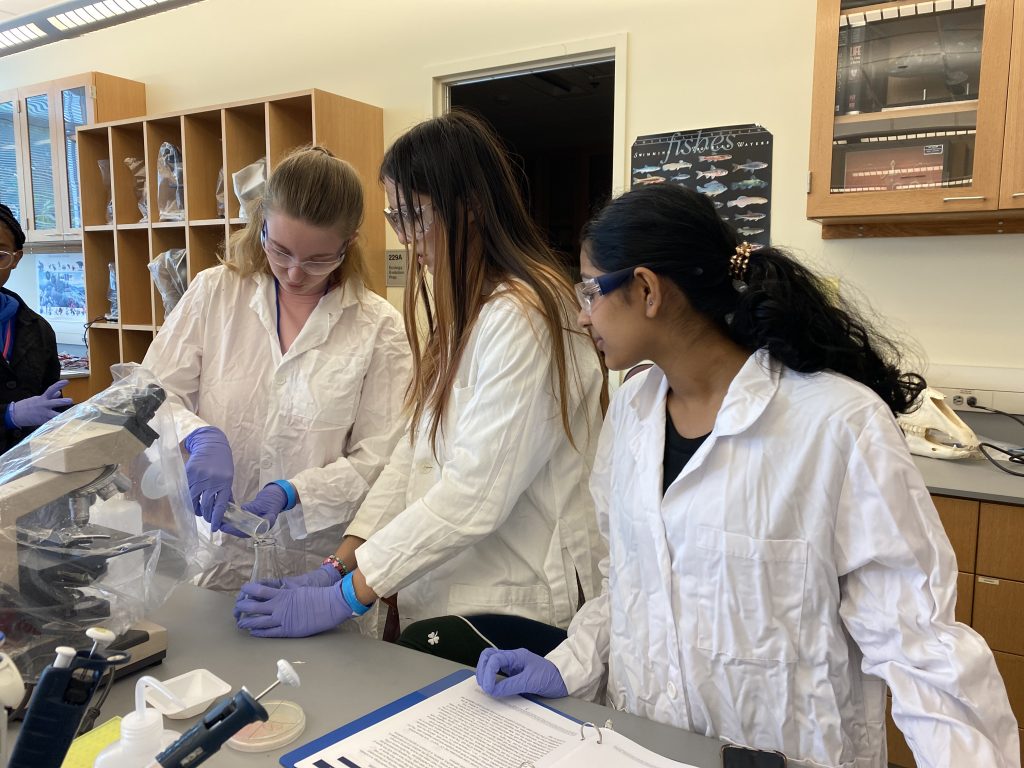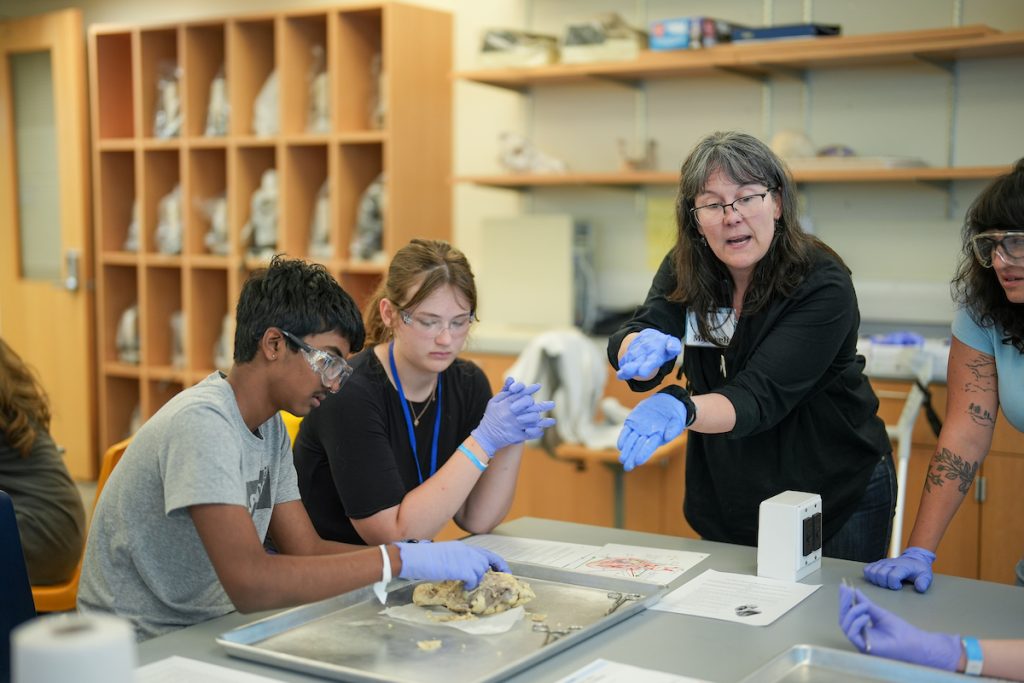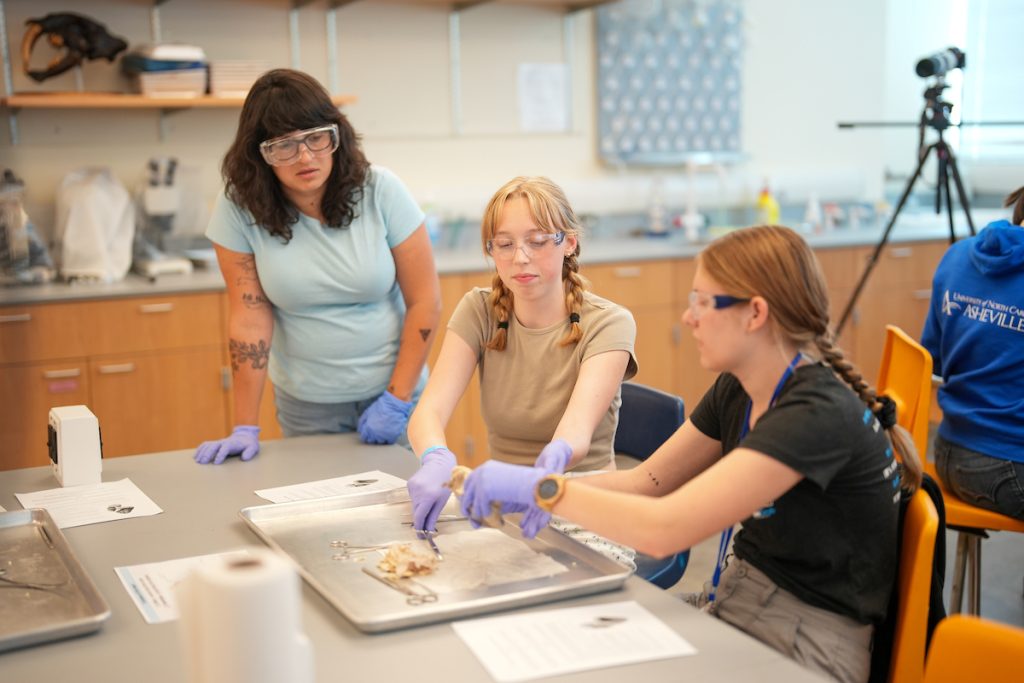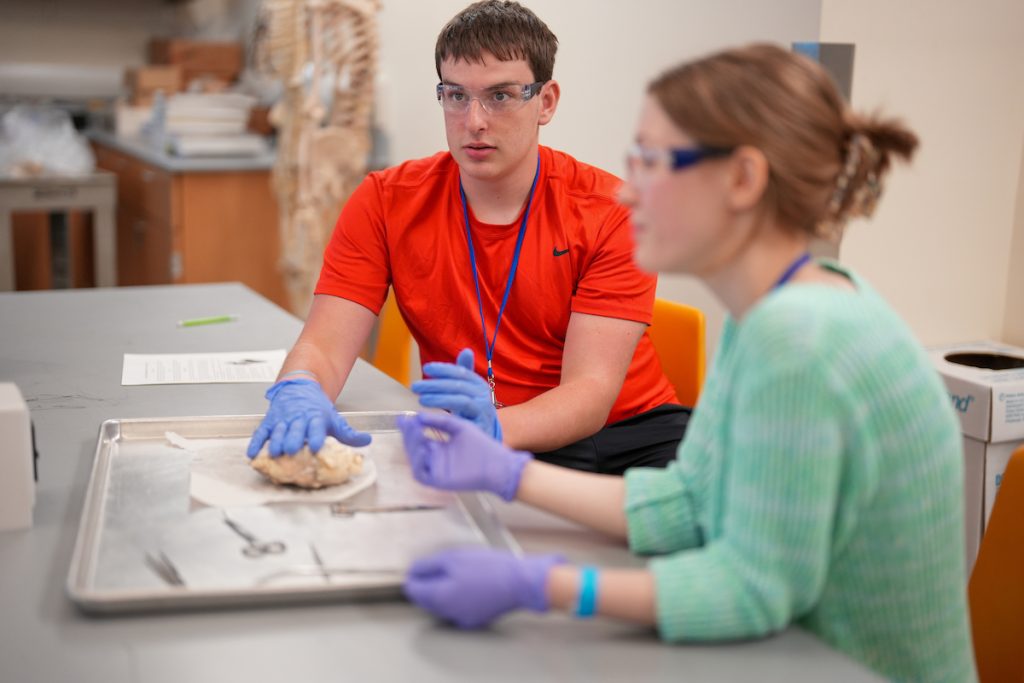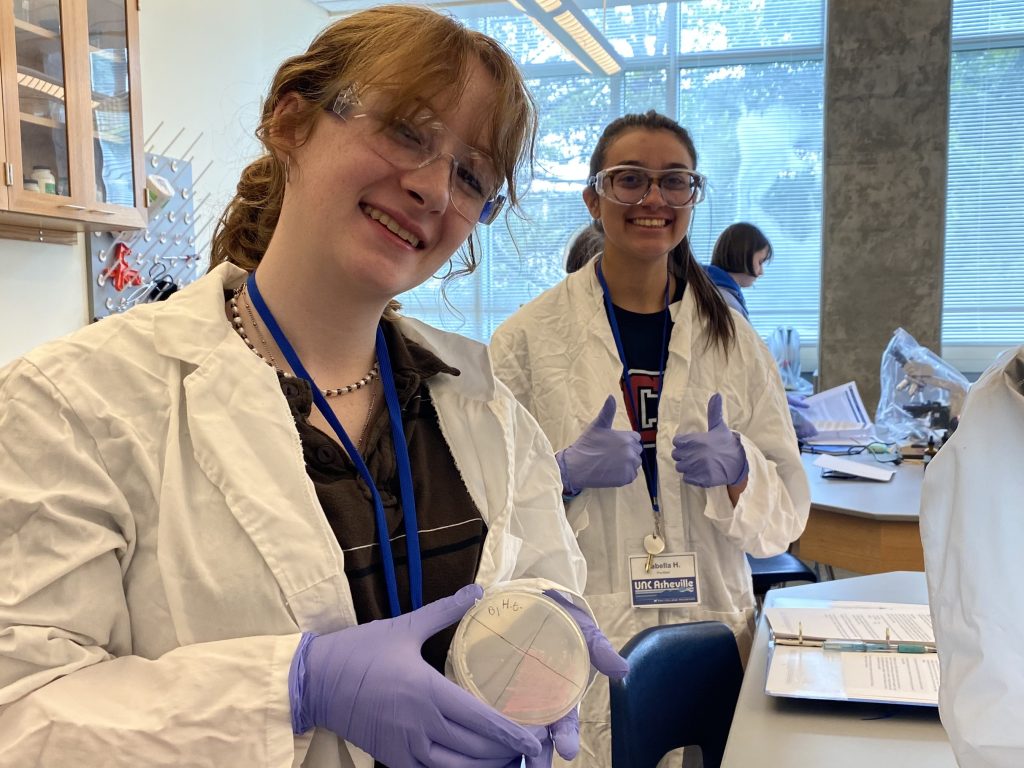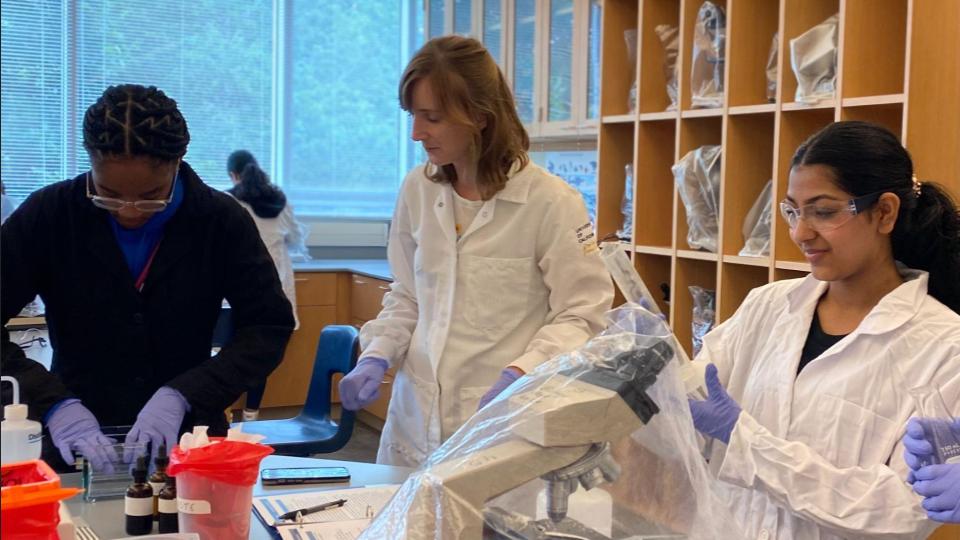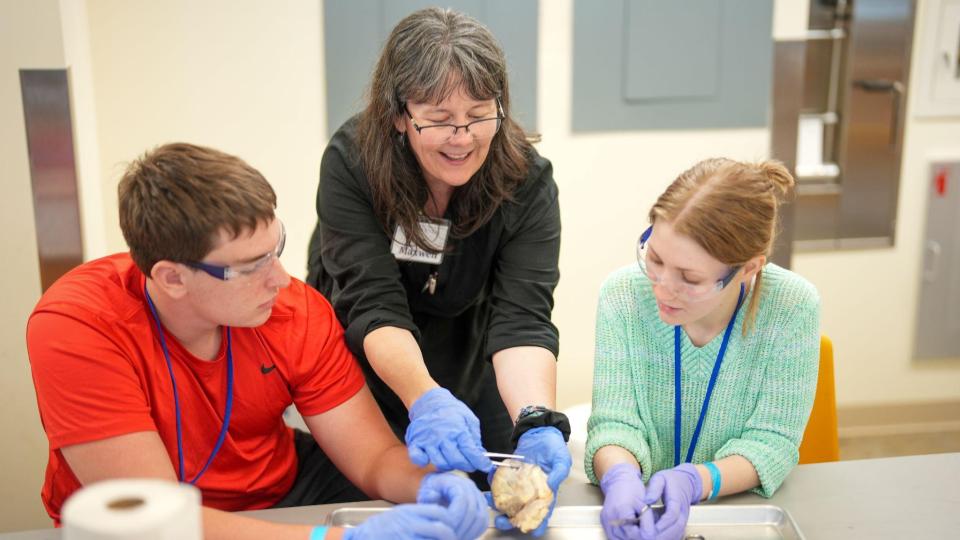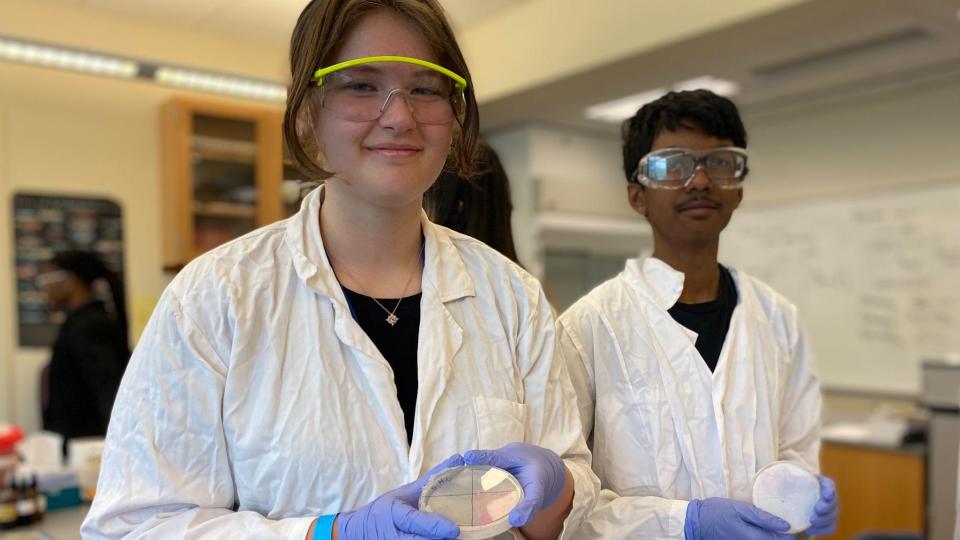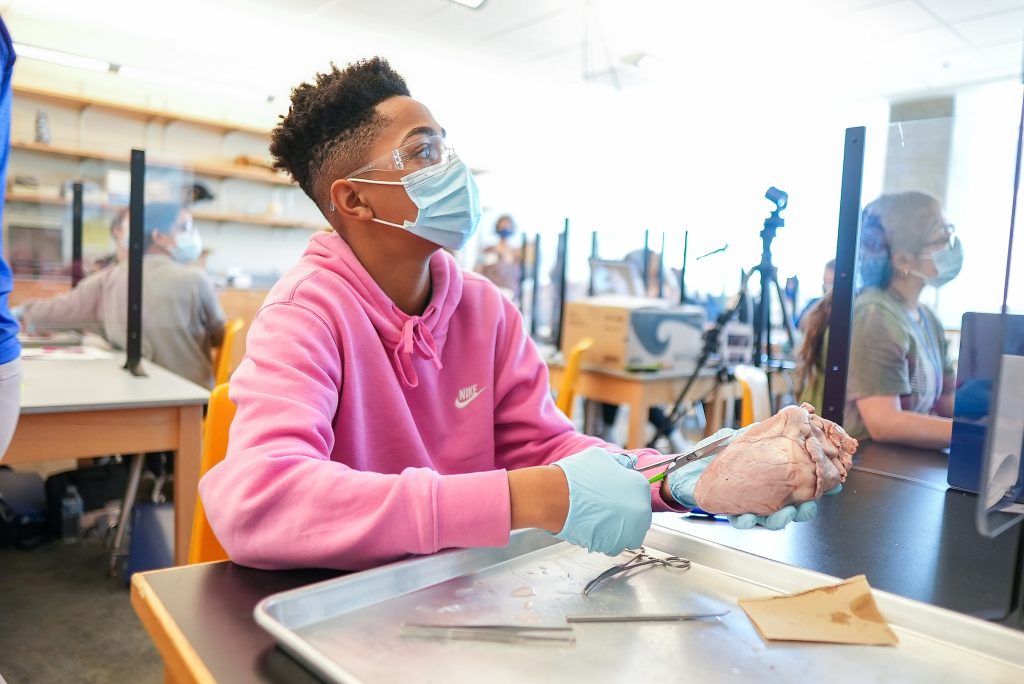
Pre-Med
Prerequisite: Biology
Discover the world of medicine in this immersive Pre-Med Pre-College Program for rising high school sophomores, juniors and seniors. Working in collaborative teams, you’ll take on a simulated patient case, perform microbiological and biochemical tests, and evaluate diagnostic and treatment options just like real medical professionals. You’ll also strengthen communication skills as you navigate the patient-doctor relationship and explore key concepts in medical ethics.
A highlight of the program is a hands-on pig heart dissection, where you’ll study heart anatomy and physiology to better understand how the cardiovascular system functions. Designed for motivated students interested in pre-med, healthcare careers, biology, and medical science, this program provides valuable exposure to the critical thinking and laboratory skills needed for future success in medicine.
Registration opens december 2025:
- June 14 – 19, 2026
- $1,660
- Pre-College Programs are open to rising high school sophomores, juniors, and seniors.
- Prerequisite course: Biology
- Price includes lodging, meals, all course materials, activities, and excursions
- A $500 deposit is required at the time of registration, with the remaining balance due by May 1, 2026. After that date, full payment is required at registration. Click here to see our cancellation policy.
- Students reside in campus residence hall and dine in campus dining hall
- Enrollment is open until spaces are filled
- Registration is through the Camp Doc platform. Detailed registration instructions can be found here

- Heart (anatomy, function, and disease)
- Microbiological and Biochemical tests
- Equity in medicine
- Patient-doctor relationship

- Didactics workshops, and laboratory activities including anatomical dissection, microbiology and biochemistry
Topics and schedules are subject to change
Sample Schedule:
Morning
- 8 a.m. – Breakfast
- 9 a.m. – Simulated patient case
- 12 p.m. – Lunch & free time
Afternoon
- 1 p.m. – Debate treatment options
Evening
- 5 p.m. – Dinner
- 6:30 p.m. – Activities / Recreation / Free Time
Options could include: sand volleyball, Asheville Tourists game, game night, movie - 11 p.m. – Lights out
Topics and schedules are subject to change
Meet Your Faculty
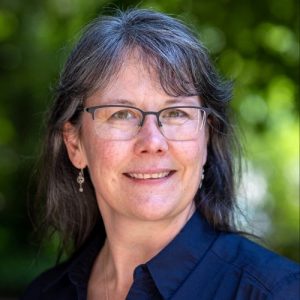
Dr. Maxwell is a pre-health Professions advisor and committee coordinator. She earned a B.A. in chemistry from UNC Asheville and an M.D. from UNC Chapel Hill. Dr. Maxwell trained in rural family medicine and has been involved with multiple international medical programs to address different aspects of health. These experiences include a position as an HIV educator in rural primary schools in Malawi, assisting an indigenous midwife in Guatemala, co-founding a program to provide HIV and cardiovascular health screenings, along with education and risk reduction in rural Mexico. Dr. Maxwell has been teaching in the Chemistry and Health and Wellness departments at UNC Asheville since 2015, and coordinates the pre-health advising program, professional speakers, and volunteer/internship experiences for our pre-health professional students.
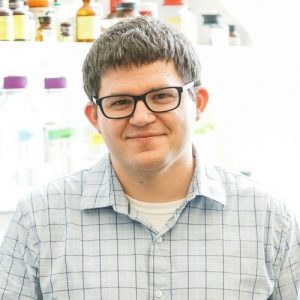
Dr. Steed has been teaching chemistry and biochemistry at UNC Asheville since 2016. He earned a Ph.D. in biochemistry from the University of Wisconsin-Madison, where he studied the mechanism of ATP synthase, an essential protein complex involved in energy conversion in all cells. Afterward, he did post-doctoral research at Vanderbilt University on the biochemistry and biophysics of multi drug resistance. Before coming to UNC Asheville, Dr. Steed taught for two years at Carleton College in Minnesota, including a summer pre-college program that involved students in a laboratory project on biological energy conversion. At UNC Asheville, Dr. Steed and his students are continuing research on the mechanism of ATP synthase with the support of the National Institutes of Health and helping to develop and test antibiotics that target ATP synthase of pathogenic bacteria.
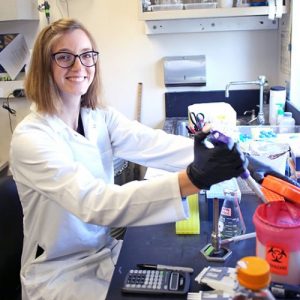
Dr. Melinda Grosser has been an Assistant Professor of Biology at UNC Asheville since August 2019. She earned her doctorate in Microbiology and Immunology at the University of North Carolina Chapel Hill in 2016. Her dissertation work in Dr. Anthony Richardson’s lab focused on physiological mechanisms of Staphylococcus aureus resistance to innate immune effectors. She then completed postdoctoral research in Dr. Suzanne Fleiszig’s lab at the University of California Berkeley School of Optometry where she studied mechanisms of bacterial pathogenesis during Pseudomonas aeruginosa corneal infections. She teaches undergraduate courses including Microbiology, Molecular Biology, and Experimental Design, Presentation, and Analysis. In her research lab, she leads a team of undergraduates through projects that answer questions about how pathogenic bacteria, especially S. aureus, adapt to harsh conditions imposed by the innate immune system during infection. Her upper-level lab courses involve students in research projects such as the identification and characterization of soil isolates that produce bioactive compounds, or construction of CRISPR interference systems to knock down essential gene expression in bacteria.
Questions? Please contact us at precollege@unca.edu.

